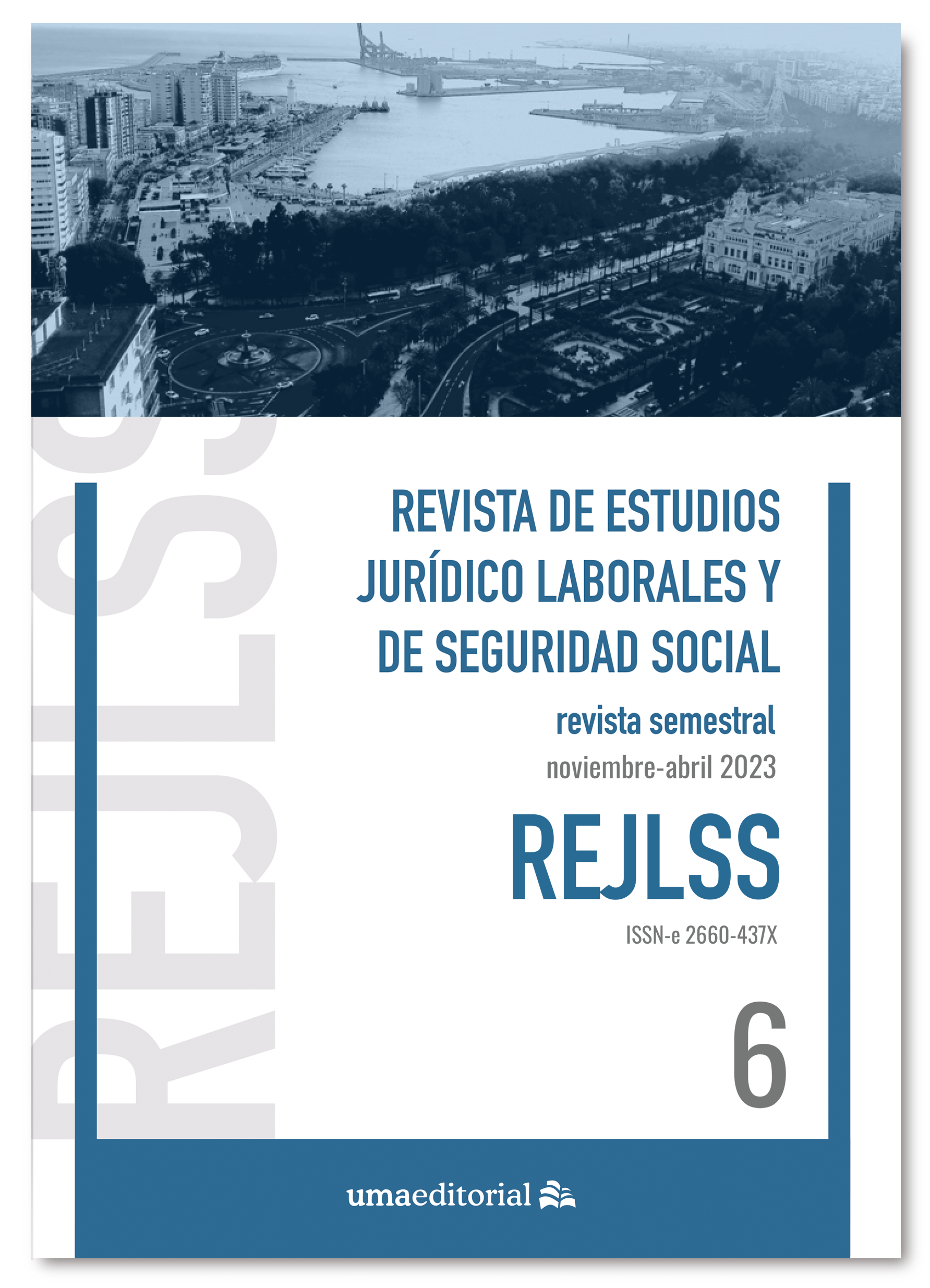Dismissal by Email and the Validity of Digital Media as Evidence in the Social Process
Comment to the Court Rulling of the Canary Islands/Tenerife 11/18/2022, rec. nº. 388/2022
DOI:
https://doi.org/10.24310/rejlss.vi6.16192Keywords:
digital evidence, email, dismissal, termination of the contractAbstract
Due to new technologies, it is increasingly common in the work environment to provide evidence of digital or electronic origin in order to prove certain acts or labour breaches committed by both employees and the companies themselves (digital evidence).
However, the question arises about the sufficient legal basis to consider this evidence as valid or effective as a means of proof in a labour trial, and if so, what will be the correct way to judicially provide these electronic documents so that they acquire full evidential value in the judicial process. The Court Rulling of the Canary Islands 11/18/2022 raises the possibility of communicating the termination of the contract to the employee through an email and therefore, in practice, raises the validity of these means as evidence in the social trial.
Downloads
Metrics
Publication Facts
Reviewer profiles N/A
Author statements
Indexed in
-
—
- Academic society
- N/A
- Publisher
- Universidad de Málaga. UMA Editorial
References
Nores Torres, L.E., “Algunos puntos críticos sobre la repercusión de las redes sociales en el ámbito de las relaciones laborales: aspectos individuales, colectivos y procesales”, Revista de Información Laboral, núm. 7, 2016.
Puyol Capilla, P., La nueva prueba documental en la era digital, Sepín, Madrid, 2014.
Rojas, R., “La prueba digital en el ámbito laboral”, Blog Laboral 3.0, Blog de Derecho Laboral y nuevas tecnologías.
Vidal López, P., “La prueba digital en el procedimiento laboral”, Legal Today, 2019.
Downloads
Published
How to Cite
Issue
Section
License
In the Revista de Estudios Juridico Laborales y de Seguridad Social (REJLSS) we are clearly committed to a policy of open access to scientific knowledge (See Berlin Declaration).
Those authors who have publications with this journal accept the following terms:
This journal provides immediate free access to its content under the principle of making research freely available to the public. All the contents published in the REJLSS are subject to the Creative Commons license
Attribution-NonCommercial-NoDerivatives 4.0 International (CC BY-NC-ND 4.0)
Copyrights are of two kinds: moral and patrimonial. Moral rights are perpetual, inalienable, non-transferable, inalienable, unattachable and imprescriptible prerogatives. In accordance with Spanish copyright legislation, the authors who publish in REJLSS retain the moral right over their work, as well as the ownership of the patrimonial right, which will be transferred to the University of Malaga for its dissemination in open access.
The patrimonial rights, refer to the benefits that are obtained by the use or disclosure of the works. REJLSS is published in open access and is exclusively authorized to perform or authorize by any means the use, distribution, dissemination, reproduction, adaptation, translation or transformation of the work.
It is the responsibility of the authors to obtain the necessary permissions of the images that are subject to copyright.
Authors whose contributions are accepted for publication in this journal retain the non-exclusive right to use their contributions for academic, research and educational purposes, including self-archiving or depositing in open access repositories of any kind.
The electronic edition of this magazine is edited by the Editorial of the University of Malaga (UmaEditorial), being necessary to cite the origin in any partial or total reproduction.
The authors may adopt other non-exclusive license agreements for the distribution of the version of the published work (eg: deposit it in an institutional telematic archive or publish it in a monographic volume) provided that the initial publication is indicated in this magazine.
Authors are allowed and recommended to disseminate their work through the Internet (eg, in institutional telematic archives or on their website) before and during the submission process, which can produce interesting exchanges and increase citations of the published work.







19.png)
